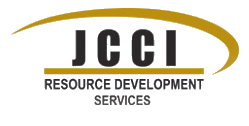Have you ever read a grant reviewer’s comments and ended up shaking your head in frustration? We have! You wonder how the reviewer could have missed the part of your proposal that clearly provides the information the reviewer claims is missing – and you provided the information exactly where the RFP instructions indicated. You might wonder if the grant reviewer was actually scoring your proposal based on that particular grant’s criteria or was relying on personal knowledge of a totally different Department of Education (ED) grant program. We understand!
Since JCCI works with numerous clients on any given grant competition, we can ascertain patterns from the grant review process that reveal discrepancies among grant reviewers and even entire review panels and their responses to/scoring of grant proposals. In fact, one of the key benefits of hiring JCCI to assist in preparing a competitive proposal is that our clients get the collective wisdom of JCCI associates and their years of reviewing such patterns to gain a better sense of what works in a proposal. Ultimately, though, the process is imperfect because it relies on individuals with varying levels of experience and personal biases, but the Department of Education (ED)—and other federal agencies—do their best to ensure that each grant reviewer is knowledgeable and understands the specific grant program requirements.
What Makes Someone Qualified to be a Grant Reviewer?
ED is always looking for competent education professionals to serve as grant reviewers and announces opportunities for peer reviewers annually in the Federal Register. Having access to a greater number of qualified peer reviewers is the best way to make the process work effectively. Ideally, a reviewer for a specific grant competition would have some practical experience in that grant program. For instance, a former Title III Strengthening Institutions Program (SIP) project director might be the perfect candidate to serve on a review panel for a Title III SIP competition, but might be far less qualified to serve as a reviewer for a TRIO grant competition. The programs are quite different, thus the requirements and proposals are also quite different.
ED has a list of Frequently Asked Questions about serving as a peer reviewer on its website. The process for becoming a grant reviewer for ED’s Office of Postsecondary Education involves completing an application on ED’s G5 site. Applicants provide information about their educational backgrounds, work experience, specific experience with grant programs, and any past experience serving as a peer reviewer. ED selects reviewers on an as-needed basis dependent upon personal qualifications that align with a particular grant competition—as well as their willingness and ability to serve as a reviewer.
While ED may have more reviewers available than needed for some competitions, perhaps more frequently ED is scrambling to get enough qualified reviewers on board to manage a timely scoring of all submissions. When ED needs more qualified peer reviewers than are available, the department may select readers who don’t have as much experience as they really need. Unfortunately, for most grant competitions, there is no “do over” if reviewers simply get it wrong or fail to understand fully the program and scoring criteria.
The Pros and Cons of Serving as a Grant Reviewer
Since qualified grant reviewers are in demand, if you have relevant experience and time to serve as a reviewer, JCCI encourages you to apply. One obvious restriction to note is that you cannot serve as a reviewer for a competition if you are affiliated with an institution that is competing for a grant award in that program. The role is certainly not one to take lightly as it requires a significant amount of time and energy on each reader’s part. Typically, readers will score about 10 different proposals for a single competition. Using an average proposal length of 50 pages, that’s some serious reading and critical reviewing in a short time frame. Additionally, reviewers must devote time to participating in ED training sessions, conversing with members of the review panel multiple times, and working with an ED education specialist to finalize comments and scores. While grant reviewers receive flat-rate stipends for each proposal they review, the amount is nominal.
Despite being a lot of work with little monetary reward, there are some great benefits to being a federal grant reviewer for ED:
- Having grant review experience is a great item to include on a résumé.
- Grant reviewers have a unique opportunity to learn what higher education institutions are doing to help students and promote better educational outcomes.
- Reviewers build connections with peers they might not otherwise meet.
- Reviewers are better prepared to help craft future successful grant proposals.
Ultimately, having more qualified reviewers helps make the process better for everyone. Applicants receive useful and relevant feedback. Qualified reviewers gain insight into the scoring and selection process, and ED grant programs become stronger through a process that increases the likelihood that quality proposals receive a fair review.

